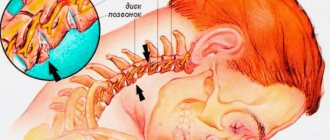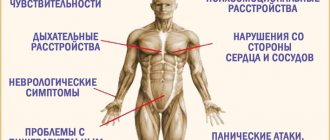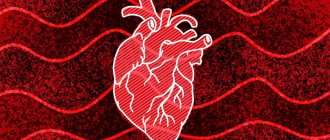The role of hypnosis in the treatment of panic attacks
Hypnotherapy
Hypnosis is used to increase the effectiveness of cognitive behavioral therapy, it allows you to improve treatment results, achieve harmony within yourself, and get rid of anxiety. Hypnotherapy helps to penetrate a person's subconscious and replace anxious thoughts with positive ones.
Treatment of panic attacks with hypnosis is effective, so in 80 percent of cases this technique is preferred. In each case, therapy is selected individually, it all depends on the nature of the disorder. The advantage of this treatment over traditional treatment is that medications eliminate the symptoms of the disease, but do not affect the cause. While hypnosis removes the cause of PA, the mental disorder. Taking medications affects the body as a whole, putting it at risk.
It is important to understand that hypnosis for panic attacks will be an effective way to get rid of fear only in one case. This will happen when the person is ready for such changes and has a positive attitude, and also trusts the doctor conducting the session. Hypnosis helps in cases where the causes of PA are not clear or there are contraindications to other treatment methods, including medications.
Symptoms
Anxiety manifests itself in the form of physiological and emotional symptoms. Let's take a closer look at each of the mentioned groups.
Emotional symptoms:
- the complexity of the thought process, the inability to stop it;
- emptiness;
- search for potentially dangerous signs;
- restlessness;
- increased irritability;
- nervousness and tension;
- problems with concentration;
- apprehension and fear.
Physiological symptoms:
- sleep problems;
- increased fatigue and frequent headaches;
- physiological and muscle tension;
- tremor and dizziness;
- shortness of breath and increased sweating;
- frequent urination and diarrhea;
- gastrointestinal disorder;
- cardiopalmus.
Types of hypnosis for PA
Ericksonian hypnosis
To solve problems of getting rid of panic attacks, the following types of hypnosis can be used.
Classic hypnosis
This is a traditional way of treating panic attacks; the session involves changing the state of consciousness. The course lasts a short period of time, during which the therapist gives direct instructions. Its effectiveness has been proven, but this therapy is not suitable for everyone, and before the session, a specialist assesses the person’s condition.
Ericksonian hypnosis
This type of hypnosis differs from classical hypnosis; it has found wider application due to its advantages, which are as follows:
- soft settings are used;
- the ability to bypass a person’s unconscious protests;
- for the patient it is practically invisible and is perceived more easily;
- The technique helps to learn self-hypnosis, which will allow a person to independently get rid of panic attacks and cope with crises.
This method is suitable for people who cannot tolerate classical hypnosis and subconsciously resist suggestion. Self-hypnosis for panic attacks, taught by the Ericksonian method, is the best way to support yourself and get rid of obsessive fear . Interestingly, the method was named after its creator, a psychotherapist who is recognized throughout the world. It allows you to build a line of behavior for the doctor in communicating with the patient on equal terms.
Work to achieve a specific result
It is important to understand that treating fears and phobias with hypnosis in Moscow will indeed bring positive results, so if you or your loved ones have problems with subconscious fears, seek help as early as possible. Experienced psychologist Maria Segal has been treating fears and phobias in Moscow for over 12 years, offering her services to everyone who needs psychological assistance. Treatment is carried out in several stages, which depend on the complexity of the phobia, subconscious fears and the psycho-emotional state of the person himself.
Sometimes it is difficult for a person to cope with his fears and phobias on his own, then it is worth contacting a specialist to treat his fears. An individual consultation is the first place people usually start, since during a personal conversation the psychologist determines the level of complexity of the problem and chooses the most appropriate methods for solving it.
The price of treating phobias with hypnosis from a private psychologist Maria Segal is completely justified, since the person comes out healthy, strong and self-confident. The service is available to everyone, and the time of consultation and treatment (immersion in hypnosis) is determined individually with each specific client. So the appointment is made at a time convenient for the person, so that he is not in a hurry and can feel relaxed and at ease.
Thanks to the methods of psychologist Maria Segal, treatment of phobias in Moscow is carried out successfully and helps to overcome all types of subconscious fears that disappear from a person’s life forever. To make an appointment with a private psychologist in Moscow, call +7 / or write to WhatsApp or Viber. To make an appointment with a psychologist via Skype, write to Skype maria.sigal3.
The benefits of hypnosis in the treatment of PA
A hypnotic trance is essentially a pause between sleep and wakefulness, during which a person is distracted from the hustle and bustle of everyday life. This allows you to look inside yourself. The trance state is absolutely natural, at this time all processes in the body are suspended, it does not pose any danger. During an attack, a person experiences fear; after the attack, it does not disappear, but becomes more intrusive. Therefore, it is important to learn how to rebuild your subconscious, which is where hypnosis can help.
A state of trance
In a trance state, new opportunities for stress management . This can be used by every person striving for self-improvement. But this is the case if there is an awareness that the cause of PA lies in the source - the head, psyche, nervous system, and not in the organs. Many people do not understand that their self-hypnosis skills are at a low level, and with its help you can not only heal a person, but also provoke a negative development of the situation.
And the drama lies in the fact that suggestible, impressionable people easily put themselves into a trance without realizing it, as a result of which the heart rate increases, blood pressure decreases, nausea and shortness of breath appear - everything that accompanies panic attacks. That is, the person himself becomes the culprit for the occurrence of PA.
It is also necessary to distinguish the state of hypnotic trance and suggestion from af, “I’m fine.” Even if you repeat them constantly, positive changes do not always occur; sometimes their action causes the opposite effect. Such uncontrolled self-hypnosis leads to the fact that a physically healthy person suffers from panic attacks and increasing helplessness in the face of them. This problem requires a solution, otherwise the situation will worsen, and various diseases may arise from stress .
Phobias and fears in human life
Fears are normal and common experiences for humans. It is normal that they can be caused by both real reasons and far-fetched experiences.
Panic attacks are a type of them. This state of anxiety is characterized not only by a subjective feeling of fear, but also by its manifestations in the form of somatovegetative disorders. These attacks usually last from a few minutes to 1 hour.
Compared to fears, or even panic attacks, phobias are more serious disorders. They are always unreasonable, uncontrollable and systematic.
A phobia is not just fear, it is an uncontrollable irrational horror that occurs in certain situations or when colliding with certain objects.
It is customary to classify phobias based on the experiences that underlie them. If we make this criterion the main one, we can highlight:
- Phobias associated with fear of spaces. The most common of these is claustrophobia (fear of closed spaces). But this group also includes fears associated with heights, depth, open spaces, etc.
- Social phobias. All manifestations of such phobias are associated with the fear of committing a wrong or funny act and receiving disapproval from society.
- Phobias associated with illness and death. Fears are very diverse: they can relate to the very fact of death, pain, the possibility of getting into an accident, becoming a victim of a maniac, the occurrence of an incurable disease, etc.
- Obsessive phobias. Associated with the presence of painful memories and experiences that a person cannot leave in the past.
Is hypnosis dangerous?
It is important to understand that hypnosis is not a person's exceptional psychic abilities, but a skill that he has learned. Treatment with hypnosis will be successful if the person himself gains reliable access to his own mental resources, and the doctor only helps him to properly cope with the disorders.
Danger lurks when a specialist manipulates a person who is in a trance, while he already has harmful attitudes and is completely lacking control over what is happening. As a result, their strengthening provokes the development of PA. A striking example of such manipulations is Kashpirovsky’s mass hypnosis.
This technique is not suitable for everyone. It does not work on people who are resistant to this kind of suggestion. It is impossible to treat patients with a hysterical personality type, who easily become dependent on the doctor, as well as people with inadequate attitudes. It is important that there is a desire to be cured.
In general, hypnosis is a powerful weapon of influence on the psyche, the consequences of which can be unpredictable. In some cases, harm can occur from the session, so it is important to take precautions. The final decision in favor of hypnosis as a method of treating PA should be made only after consultation with a specialist.
Hypnotherapy Basics
Hypnosis is also called the “psychologist’s scalpel”; it is a tool that is capable of opening the depths of the human consciousness.
It makes it possible to open access to the unconscious, its depths and resources. Thanks to it, it is possible to unlock your health potential, change your emotional regime and behavioral motivation.
What is hypnotherapy? With its help, consciousness and many of its spheres are corrected, and resources are activated. This allows you to cope with stress and illness, reveal and activate mental capabilities. During hypnosis, a person is simultaneously in a relaxed position and in the process of concentration. This is not a dream, but a state close to it. At the same time, contact with the hypnotherapist is maintained.
Choosing a specialist
The pitfalls of hypnotherapy include the fact that you cannot trust the management of a session to a person who does not have a medical education. Currently, there are many courses that teach hypnotic techniques, often used by people with mental disorders. And many of them try not only to solve their problems in this way, but also to treat others, making money from it. Accordingly, you should approach the choice of a specialist consciously.
The body has a high degree of protection from “unauthorized” influence, and it is almost impossible to instill in a person something that contradicts his life principles. Treatment should be trusted only to a kind and reliable person who is professional in his work. The effectiveness of therapy directly depends on this. It would be useful to study customer reviews about the results of treatment.
Causes of phobias
People who have a “subtle” nature, which usually implies the presence of a receptive psyche, are more prone to the appearance of phobias.
The causes of phobias often lie in childhood. Extremes can become a risk factor: excessive care on the part of parents and their unjustified detachment.
The main causes of phobias:
- Consequences of fears experienced in childhood: such traumas can manifest themselves in adulthood in the form of phobias, seemingly out of nowhere.
- Hereditary factor. Modern scientists have identified a genetic predisposition to the occurrence of phobias.
- Serious traumatic brain injury.
- Drug use or excessive alcohol intake.
In the last two cases, a violation of brain neurotransmitters occurs, and disturbances of the autonomic nervous system appear.
Very often, the occurrence of phobias is due to a complex of reasons. They can be triggered by a variety of factors.











